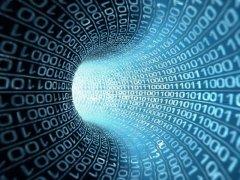\textsc{Lara} is a key-value algebra that aims at unifying linear and relational algebra with three types of operation abstraction. The study of \textsc{Lara}'s expressive ability reports that it can represent relational algebra and most linear algebra operations. However, several essential computations, such as matrix inversion and determinant, cannot be expressed in \textsc{Lara}. \textsc{Lara} cannot represent global and iterative computation, either. This article proposes \textsc{IterLara}, extending \textsc{Lara} with iterative operators, to provide an algebraic model that unifies operations in general-purpose computing, like big data, AI, scientific computing, and database. We study the expressive ability of \textsc{Lara} and \textsc{IterLara} and prove that \textsc{IterLara} with aggregation functions can represent matrix inversion, determinant. Besides, we demonstrate that \textsc{IterLara} with no limitation of function utility is Turing complete. We also propose the Operation Count (OP) as a metric of computation amount for \textsc{IterLara} and ensure that the OP metric is in accordance with the existing computation metrics.
翻译:暂无翻译




